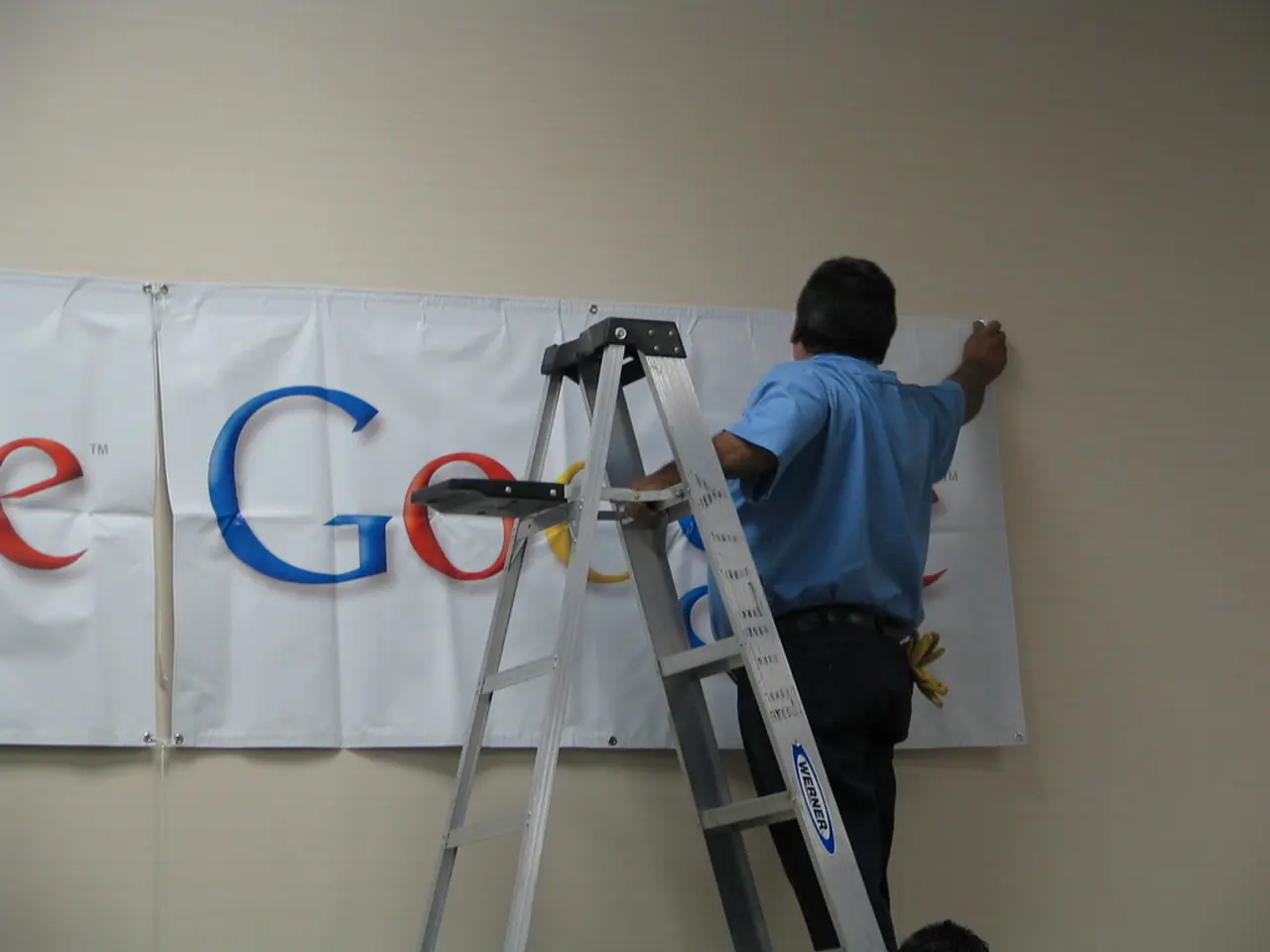A potential transformation of Google following a split.
In the realm of technology, a hypothetical breakup of Google could pave the way for significant changes. This potential division might result in three stand-alone companies: Search, Android, and Media.
The tech industry, which currently accounts for only 3.4% of GDP, has become relatively conservative, and a blast of disruption is needed to unleash its potential for growth. A Google breakup could serve as just such a catalyst.
One of the most immediate impacts could be on the advertising sector. The advertising unit of a broken-up Google would become more competitive, offering brands more varied pricing and better transparency. This could lower costs compared to Google's current monopoly-influenced pricing structures and alleged collusion, such as the Jedi Blue agreement with Facebook, that kept ad costs high and barriers to entry steep.
Another potential benefit is the lowering of entry barriers for new digital businesses. Breaking up Google may unbundle Google's integrated services, such as search, browser, and ad tech, allowing new startups and platforms to compete more freely without Google's tight ecosystem control, which currently limits competition and innovation.
The app stores and ecosystem control could also see a transformation. If the breakup includes separating Google Play Store from the core Android/Google ecosystem, it might lead to more diverse app marketplaces with less gatekeeper control, enabling developers easier access and potentially fairer revenue shares.
Independent units would likely pursue innovation more aggressively to compete without protection from Google’s integrated infrastructure. For example, YouTube spun off as an independent firm could aggressively innovate in video streaming and AI-powered content discovery.
However, challenges remain. YouTube and Chrome rely heavily on Google’s infrastructure, like search and ad sales synergies. Severing these could cause short- to medium-term disruptions and loss of efficiencies. Also, Google’s no-code AI platform Opal and AI models currently have complex pricing that may evolve post-breakup, impacting accessibility for businesses using these tools.
In summary, a breakup could dismantle Google’s dominant ecosystem, reduce ad costs over time, lower entry barriers, diversify app distribution, and spur innovation. Yet transitional friction and loss of synergies must be managed carefully to avoid unintended negative effects on user experience and industry stability.
The breakup could lead to the emergence of smaller, more focused companies with a greater capacity for innovation. This could help unleash the tech industry's potential for growth, particularly in sectors like advertising, app development, and video streaming. Regulators have raised concerns about Google's dominance of web advertising driving up costs, and the Department of Justice in the US has argued for Google to be broken up. The EU's strategy of harassing Big Tech with constant fines and cumbersome regulations is less effective than a Google breakup in fostering competition and innovation.
The oil industry underwent significant improvement after the break-up of Standard Oil, which could be similar for the tech industry following a Google break-up. A more open market could increase choice for consumers in the digital industry, fostering competition and driving innovation. Search would need to innovate to stay ahead of AI-driven services in a broken-up Google, and mobile would have to adapt and improve instead of relying on corporate power.
In the end, the impacts of a Google breakup are far-reaching and complex, but the potential benefits for competition, innovation, and consumer choice make it an intriguing prospect for the future of the tech industry.
[1] "The case for breaking up Google," The Economist, 11 May 2019, www.economist.com/leaders/2019/05/11/the-case-for-breaking-up-google [2] "Google's AI platform Opal could shake up the AI market," VentureBeat, 22 October 2020, venturebeat.com/2020/10/22/googles-ai-platform-opal-could-shake-up-the-ai-market/ [3] "Google's dominance of web advertising drives up costs, regulators say," The Wall Street Journal, 15 October 2020, www.wsj.com/articles/google-s-dominance-of-web-advertising-drives-up-costs-regulators-say-11602639601 [4] "DOJ sues to block Google's $2.1 billion Fitbit acquisition," CNET, 20 October 2020, www.cnet.com/news/doj-sues-to-block-googles-2-1-billion-fitbit-acquisition/ [5] "The Jedi Blue case: Facebook and Google colluded to keep ad prices high, lawsuit alleges," The Verge, 29 September 2020, www.theverge.com/2020/9/29/21509076/facebook-google-antitrust-lawsuit-jedi-blue-ad-pricing




